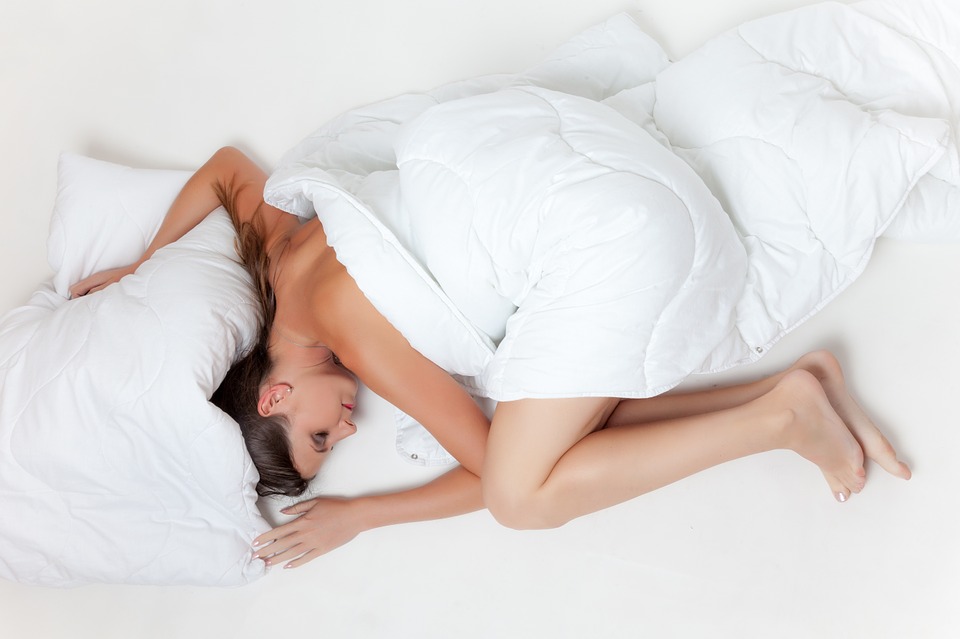
Body + Mind is reader-supported. We may earn an affiliate commission when you buy through some of the links on our site.
“Why am I so tired?” runs through the mind as one of the top questions women ask themselves day in and day out. So why are you dragging your feet when you want to be dancing? The answer starts with understanding the causes of low energy in females.
Modern society functions on the hustle and bustle lifestyle, causing many of us to feel low from time to time. Some of the most common female health problems really take a toll on your energy levels. Here are the most common causes of low energy in females.
Feel continuously exhausted? You may have Chronic Fatigue Syndrome (CFS), which affects about one million Americans, but women are up to four times more likely to be diagnosed with CFS than men. Common symptoms include:
The cause remains unknown, but CFS is treatable.
An underactive thyroid doesn’t make enough hormones, causing fatigue. The resulting condition is known as hypothyroidism. Thyroid disorders are also associated with an early onset of menopause before 40 and can affect ovulation and the health of both mother and fetus during pregnancy.
Your blood sugar drops when you skip meals and don’t eat enough during the day. Notice headaches and dizziness with your fatigue? Ask yourself: “When was the last time I ate today?”
These particular symptoms and causes of low energy in females sneak up on most women as they rush to meet family and work obligations with little time for self-care. You must remember that food is necessary. Put on your oxygen mask first, ladies.
Space your meals out by about four hours or eat small meals more often. When you feel lethargic between meals, drink a glass of water and eat a handful of nuts.
The “S” trifecta contains the very best comfort and junk foods: saturated fats, sugar and sodium. They’re usually in those perfect grab-and-go containers in the grocery store, but the “S” trifecta harms your body when you eat too much.
The warning signs come on fast. You may feel lethargic and experience terrible headaches. Your body feels like it’s wading through molasses.
Include healthier and more diverse food groups in your diet such as salmon, nuts and Greek yogurt. Good gut health boosts the immune system, energy levels and your overall well-being. Make your plate colorful! Opt for carrots and ranch instead of cheese curls.
Is there such a thing?! Yes.
Many people have different reactions to caffeine. Some feel instantly tired while for others it takes a little while for the fatigue to hit.
Excess caffeine affects your ability to fall asleep and stay asleep. One study gave two groups of healthy adults coffee six hours, and three hours, before bed. Both groups had issues falling asleep. The adverse side effects of excessive caffeine also include anxiety, muscle breakdown and digestive issues. Have that last cup before mid-afternoon.
When consuming caffeine, focus on moderate doses instead of downing coffee and soda like you’re in a race to win a million bucks. Your body needs sleep to heal and optimize its functions, so don’t mess with the system.
Everyone’s circus and monkeys prefer the tent in your head to perform their shows all at once, right before bed. Too much stress contributes to a state called hyperarousal, which can lead to insomnia. Stress can be contagious when pressure and negativity surround you.
Cut out what stress you can and focus on meditation, walking or enjoying a hobby to combat increased stress levels.
Moderate exercise decreases fatigue and boosts energy and low-intensity exercise can raise your energy levels — even just walking around the room.
Switch up your positions throughout the day, especially if you work at a desk. Move around and shake up your routine. Add more physical activity to your week by walking around the block in the evenings or mornings.
These are a few of the most common causes of low energy in females. As women, we often rush from obligations at home to duties at work, and rarely get time to care for ourselves.
Remember that maintaining your health is a delicate balance. Space out healthy meals, get active and reduce stress factors. If fatigue persists, see your doctor to get screened for CFS and hypothyroidism.
Don’t let fatigue keep you down — unless maybe it’s for Netflix. But only if you eat carrots sticks while watching. Deal?
Your email address will only be used to send you our newsletter, and at any time you may unsubscribe. For more information, see our Privacy Policy.